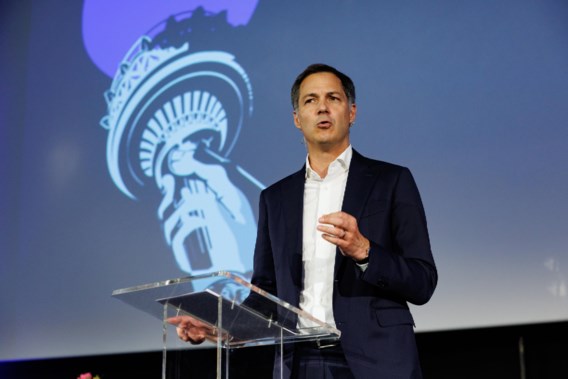Coordinated strike action by public-sector unions on Tuesday has affected much of Belgium's transport and schools. Unions are demanding better protection to deal with the cost of living crisis, the strengthening pension systems, more investment in the public sector and improved social consultations between trade unions and politicians.
However, Belgium's government has yet to show signs of bowing to union demands. Speaking on national radio in the morning, Prime Minister Alexander De Croo drew compared Belgium's response to that of other countries, asserting that "In Belgium, the purchasing power compensation is automatic, unlike in other countries. In the Netherlands, negotiations about compensation are only now starting."
The Prime Minister acknowledged that sky-high inflation is "difficult for everyone," apparently ignoring that the burden will be greater for the country's poorest, especially as inflation has reached levels unseen in 40 years. "I understand the concerns of the unions, but the purchasing power compensation is much better regulated in our country than in other countries," De Croo insisted.
"Inflation is a difficulty that everyone must deal with... I understand that there are concerns but if you compare us to other countries, we have good protection here."
However, unions disagree: "Purchasing power has been falling sharply for some months and this even prevents some people from going to work," stated Stéphane Deldicque, Vice-President of the Public Services Union (CSC).
No sympathy from businesses
Lobbying for businesses against the material interests of the general public, the usual suspects have a more narrow view of public sector workers' concerns.
The key demands of the strikes focus on the very real issues affecting individuals, such as soaring utility and grocery bills. Yet business associations Voka and Unizo also have shown little sympathy for the public sector strikes on Tuesday. A Voka spokesperson told De Morgen that "The unions have blinders on" and questioned the "general malaise" in the public sector.
The Commerce Association pointed out that the wages of public sector employees have been indexed by 2% for the fourth time since October 2021. They assert that this shows "a direct compensation for rising inflation."
Staff shortages
Yet the strikes are not only related to the spiralling costs of living. Acute staff shortages are also making working conditions increasingly difficult in the public sector. Unions are calling for a boost in recruitment to address the issue.
Günther Blauwens, General Secretary of the ACOD trade union, explained that cuts by the previous government have hit staff numbers: “(The Government) has still not recognised the need for proactive recruitment; recruits must undergo training and can’t just be hired from one day to the next.”
Related News
- National strike: Just one metro operating in Brussels, disruptions across country
- Belgium to be paralysed by general strike on 31 May
Business lobbies, echoing De Croo, point to other countries as a justification against strikers asking for better work conditions: "The unions remain deliberately blind to the precarious situation in the rest of the world," said Voka managing director Hans Maertens.
They argue that boosting public sector expenditure will have a detrimental effect on economic prosperity – a pro-business stance typical of many liberal lawmakers. Maertens urged moderation in raising public sector wages, declaring that in doing so "We are playing with fire and the bill will be doubled later."
Yet Stéphane Deldicque, vice-president of the CSC Services Publics, stressed the significance of the strikes on Tuesday: "People who are already struggling to make ends meet are going to lose a day's pay. I hope that people will think about this and not just remember the inconvenience. The unions insist on the rebalancing of the public sector, which has not been improved for several years."

